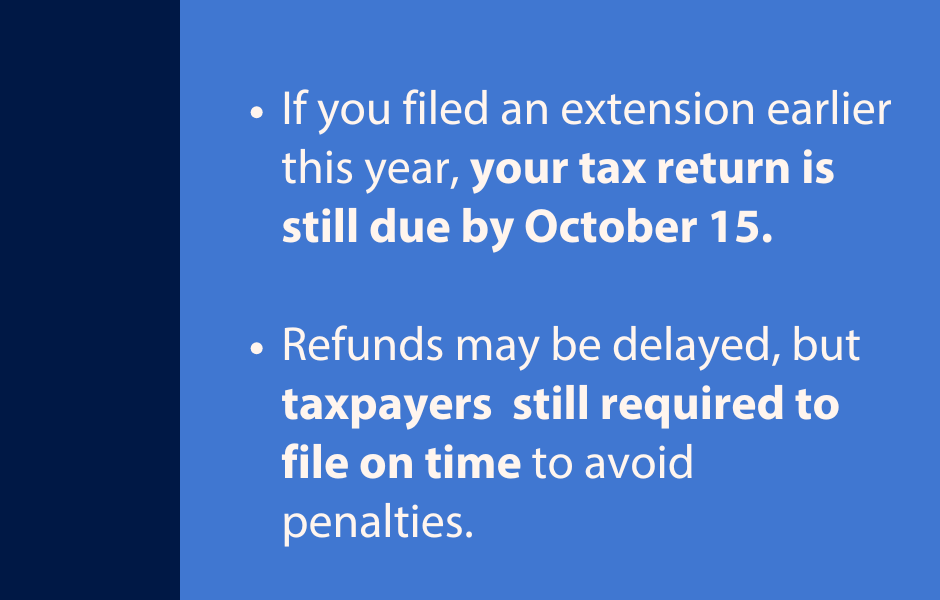What You Need to Know
The federal government entered a shutdown on October 1, 2025, after Congress missed its funding deadline. The IRS has announced that all employees will remain on the job for the first five business days (through October 7) thanks to carryover funding from the Inflation Reduction Act. This means that services like return processing, taxpayer support, and system access should continue without disruption in the short term.
If you have not yet filed, we need your documents NOW.

What Could Change After Day Five
If the shutdown extends beyond the first week, the IRS will reduce activity to essential functions only.
That may result in:
- Delays in refunds
- Longer wait times on phone and written inquiries
- Slower release of new guidance
- Suspension of some audit and appeals activity
It’s also important to note: if you filed an extension earlier this year, your tax return is still due by October 15.
Shutdown or not, the deadline does not move. While refunds may be delayed if the shutdown continues, taxpayers are still required to file on time to avoid penalties.
Steps to Take Right Away
Even with a short-term buffer, it’s smart to handle urgent items now:
- File returns, extensions, and elections promptly
- Stay current on all required payments (these deadlines don’t change)
- Pull transcripts and process POAs while IRS systems are fully staffed
If the Shutdown Continues
For shutdowns lasting beyond five days, plan for slower turnaround times and keep careful records:
- Document IRS-related delays that affect filings or responses—this may support penalty relief later
- Track key deadlines like refund claims or collection statutes and act conservatively to protect your position
- Communicate regularly with clients or stakeholders about expected delays in refunds, notices, or audits
Bottom Line
The IRS’s five-day funding cushion offers temporary stability, but disruptions are likely if the shutdown continues.
Filing and payment deadlines remain in effect—including the October 15 deadline for taxpayers who filed extensions.
Even if refunds are delayed, timely filing is required.
What This Means for You
If you have not yet filed, we need your documents NOW.
We will continue to monitor the situation closely and are here to help you stay compliant and minimize stress during this period of uncertainty.








